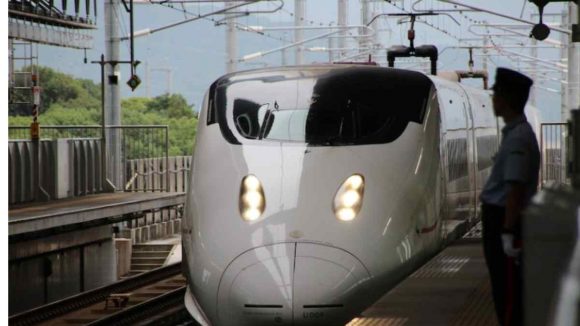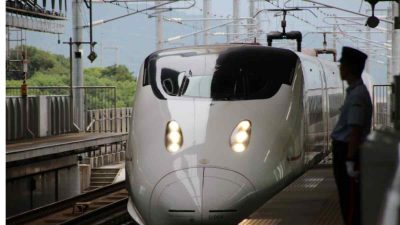Vacant space on Japan’s Shinkansen bullet trains is no longer going to waste as the country is leveraging it to deliver fresh food in bulk the same day.
Shinkansen bullet trains are the fastest high-speed transport in Japan. However, depending on the time of the day, they are not always filled to their full capacity. Japan Railways Group (JR) companies are now expanding cargo transportation services using these bullet trains.
Staff load the items onto boxes and transport them from production areas to large markets. The train service is helping to shape Japan’s last-mile delivery into an ultra-fast delivery option.
The punctuality of the Shinkansen operations contributes to fast and reliable delivery. Disruptions in the truck industry have also led to companies exploring new ways to avoid using traditional transport methods for last-mile deliveries.
Japan logistics ‘2024 problem’
Dubbed the ‘2024 problem,’ Japan’s logistics sector faces numerous problems due to a cap on overtime hours for truck drivers that came into effect in April. Long-distance logistics transport requires truck drivers to sit behind the steering wheel for long hours. But with the new legislation, it’s no longer possible to move these items in the traditional way.
Japan’s logistics industry relies heavily on drivers working long hours. But since the new cap was enacted, the maximum number of hours drivers are allowed to work is now limited to 960 hours per year, including short breaks between trips.
A logistics battle
As early as September 2023, researchers at the Nomura Research Institute estimated that the impact of the ‘2024 problem’ would leave 35% of Japan’s cargo nationwide stranded by 2030.
One proposed solution was using Shinkansen trains, but many hurdles had to be overcome.
Now, months later, the Shinkansen is transporting many local specialties and other items faster from the service areas of six JR companies.
Lessons for an entrepreneur
Japan has turned a problem with vacant space in the Shinkansen trains into a solution. It’s solving another problem with a shortage of truck drivers. Here’s what entrepreneurs can learn from this:
- Innovate last-mile delivery by offering a reliable alternative to traditional transport methods.
- Explore alternative transport methods, but identify your options and devise a plan. This will help to side-step sudden legislative changes that can hamper logistics flow.
- Prioritizing reliability can help with a company’s reputation by ensuring the delivery service is not compromised and meets customers’ expectations.
Photo credit: jrpass
About the author
Mia is a multi-award-winning journalist. She has more than 14 years of experience in mainstream media. She's covered many historic moments that happened in Africa and internationally. She has a strong focus on human interest stories, to bring her readers and viewers closer to the topics at hand.











